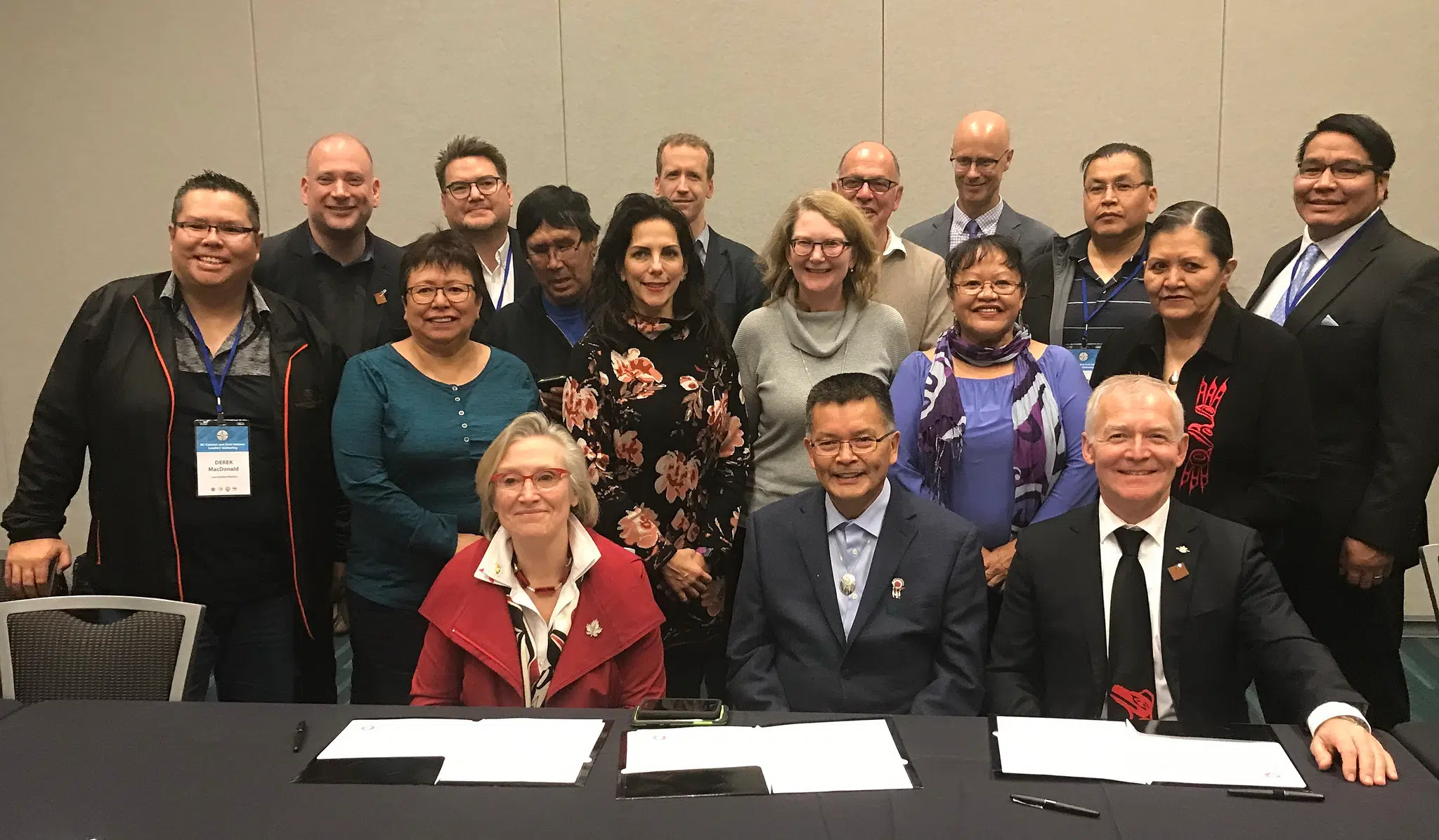
Province, Canada & Lake Babine Nation Sign MOU
VICTORIA – The Province and the federal government have joined the Lake Babine Nation in working towards a long-term reconciliation agreement – Tripartite Memorandum of Understanding to Guide Rights Implementation and Reconciliation Negotiations.
“This negotiation is about how to implement Lake Babine’s inherent rights in true partnership with the Crown,” Gordon Alec, Chief of Lake Babine Nation. “My Nation is pleased to finally be negotiating towards an agreement with both B.C. and Canada that would honour our rights and title, help us heal from the legacies of colonialism and allow us to take a leadership role in growing the regional economy. This work is urgent and of the highest priority for Lake Babine.”
Key topics that are under negotiation are lands, land and natural resource decision-making, forestry, self-government, child and family well-being, education and language, and justice.
The agreement will help strengthen the Crown-Lake Babine relationship for up to 25 years, by setting out goals each side can put in place once they’re completed.
